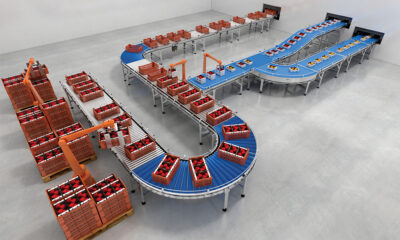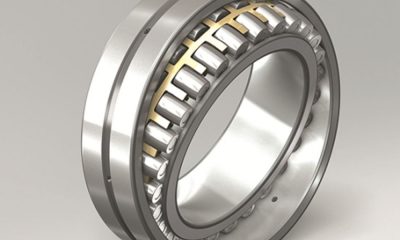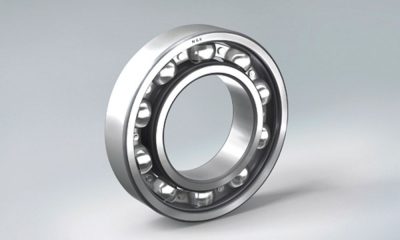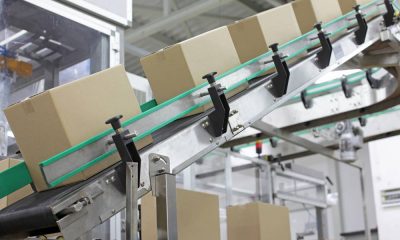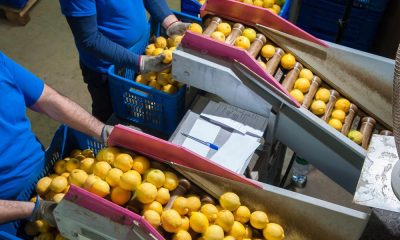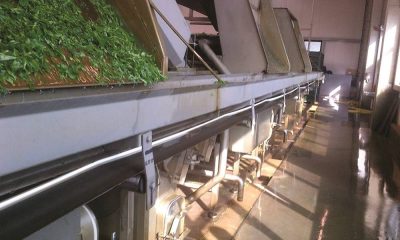Bearings
Hygienic design cuts risk of food contamination

Bearings are critical to the operation of food processing lines, but can act as traps for bacteria, so must be designed so as not to cause contamination. Phil Burge, marketing and communications manager at SKF UK, explains.
Possibly the worst nightmare for the manager of a food processing factory is a product recall and there is approximately one incident every day in the UK. Many recalls are down to mislabelling, but a significant number are caused by bacterial contamination. Since the start of 2019, there have been separate incidents of salmonella in Polish sausage, tahini and mayonnaise, and one of listeria in cheese.
To avoid these types of incident, food manufacturers follow the principles of hygienic design, which insists that plant and machinery is easy to clean, does not harbour germs, and reduces the risk of cross-contamination (such as by cleaning fluids or other contaminants).
One guiding principle of hygienic design is cleanability, which is why many preparation surfaces are flat and made of stainless steel. However, the rule is often broken at the component level.
Microbe traps
Despite their small size in relation to an entire food processing line, bearing units can be a major centre of contamination. For instance, bearing housings can act as tiny incubators for bacteria.
The crevices within a bearing housing are notoriously difficult to clean and can house a variety of food particles, where bacteria can multiply. Once at this stage, an otherwise-rigorous cleaning regime can actually make the problem worse. High-pressure washing can dislodge the bacteria and carry them into the air in the form of aerosols. Once they settle on the floor, they can be spread around the factory. The key task is to stop the bacteria at source.
Lubricant woes
Food safety is also compromised by the lubrication process. A common problem is over greasing: contaminants that have worked their way into bearings are often removed using grease flushing. However, this has many downsides, including reliability issues, high costs, reduced asset availability and environmental issues.
Relubrication is another problem. Bearings must be lubricated in order to work efficiently, but this raises the risk of contaminating the product with lubricant. Although food grade lubricants are available, they can contain allergens.
The rigorous washdowns used in the food industry can also affect lubricants: the high temperature and pressure of the cleaning water, combined with harsh detergents, can penetrate bearing seals. This is often solved with grease flushing or relubrication and both have already been shown to cause problems.
Upgrading to food safe
The challenge is to redesign food grade bearing units (which can be used in food-contact applications) into food safe bearing units. With rigorous hygienic design principles elevating them to a higher level by the addition of elements such as extra sealability and cleanability, and the use of allergen-free, non-toxic materials.
A prime example of a food safe product is SKF Food Line ball bearing units – Blue Range, which follow the rules of hygienic design. They combine smooth, inert surfaces with a self-draining geometry, superior sealing and a relubrication-free design. These features ensure that microbes cannot penetrate the bearing, while lubricant cannot escape.
Material gains
Materials are an important factor. The housing is moulded from polypropylene (PP), a highly inert material with high chemical resistance. Inclusion of 40% long glass fibres helps to enhance mechanical properties. The housing is co-injected with a rubber seal, sealing the interface between frame and housing to avoid crevices and empty spaces for bacterial growth. At the same time, the bearing grease used is allergen-free.
The sealed design also ensures that relubrication is not necessary. One example is in the back seal, which stops contamination entering through the shaft inside the bearing unit by providing both static sealing (against the housing) and dynamic sealing (against the shaft).
Blocking ingress
Another innovative feature is the gutter concept, which boosts cleanability by protecting against detergent ingress. Detergents are designed to pass through anything, so blocking this process is almost impossible. SKF’s gutter concept allows detergent through but guides it towards non-hazardous areas. If water enters the top lip of the seal during washdown, it is guided around and out of the other side by either gravity or centrifugal force, if the bearing is active.
In addition, components are coloured blue for easy optical detectability, while the sealed nature of the bearings means there is no need for relubrication.
One food industry user of the Blue Range bearing units said recently: “Not having to relubricate, and clean excess lubricant from units, is of vital importance to us. In both the appearance of the conveyor lines and the safety around them.”
Cost savings
More carefully designed products usually come with a premium. However, the concept of hygienic design actually saves money for customers through factors such as extended bearing life, reduced need for cleaning and the reduction in re-greasing costs, including the grease itself, and the time taken to apply it.
For instance, a large food industry conveyor system with 200 bearing units may need re-greasing 50 times per year. The cost of grease may be £40/kg, that of labour around £20/hour. Removing these costs can save more than £12,000/year. The labour could be redeployed onto continuous improvement activities.
Third-party tests have also shown that the cleaner state of the Blue Range bearing units means they require around one-third less water to clean them.
Overall, though, the largest saving could be that of creating the necessary conditions to cut the risk of food contamination, and subsequent product recalls, to a minimum – and what factory manager would say ‘no’ to that?
-
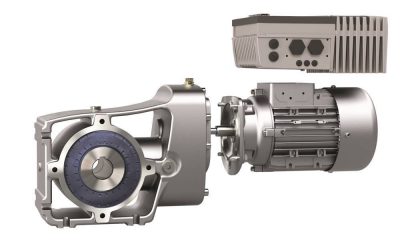
 Drive systems4 years ago
Drive systems4 years agoIntelligent frequency inverters for digital production
-
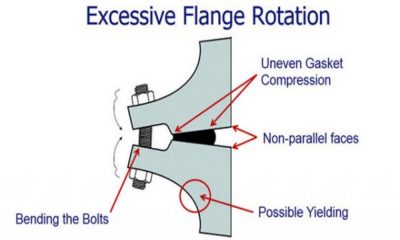
 Industrial Hardware and Machine Parts7 years ago
Industrial Hardware and Machine Parts7 years agoThe necessity of bolted flange connection training
-
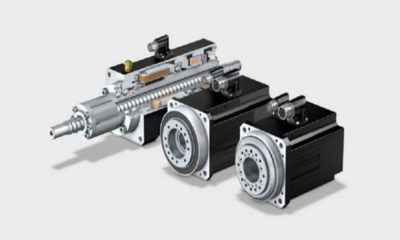
 Motors7 years ago
Motors7 years agoNew generation of hollow shaft motors
-

 Industrial Hardware and Machine Parts7 years ago
Industrial Hardware and Machine Parts7 years agoABB and Formula E partner to write the future of e-mobility
-
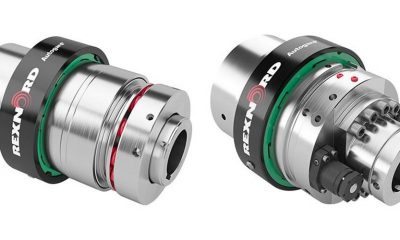
 Industrial Hardware and Machine Parts7 years ago
Industrial Hardware and Machine Parts7 years agoRexnord adds to its Autogard Torque Limiters with the XG Series
-

 Motors7 years ago
Motors7 years agoZF Technology on the Winners’ Podium of the Dakar Rally 2017
-
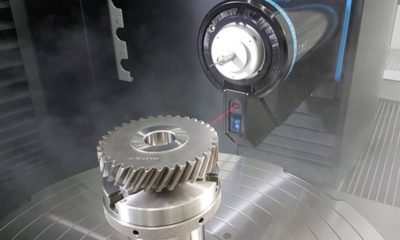
 Gear drives6 years ago
Gear drives6 years agoKlingelnberg at control 2018: Tactile and optical measurement on one machine
-
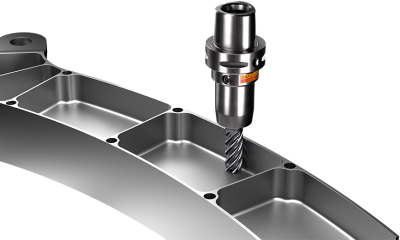
 Motors7 years ago
Motors7 years agoGet a first-class ticket to productivity
-
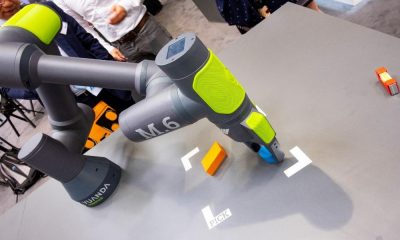
 Motion control6 years ago
Motion control6 years agoWhere the robots come from?
-
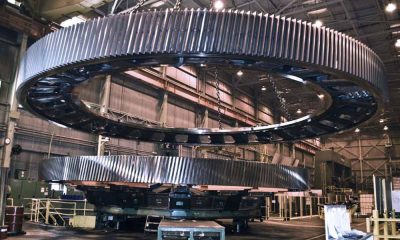
 Motion control6 years ago
Motion control6 years agoRexnord to Acquire Centa Power Transmission
-
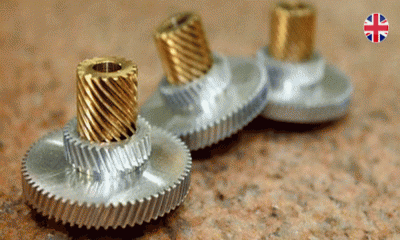
 Industrial Hardware and Machine Parts7 years ago
Industrial Hardware and Machine Parts7 years agoCustom hobbing tool enables 45-degree angles
-

 POWER TRANSMISSION TECHNOLOGIES3 years ago
POWER TRANSMISSION TECHNOLOGIES3 years agoEUROTRANS Board meets for its first session in 2021

